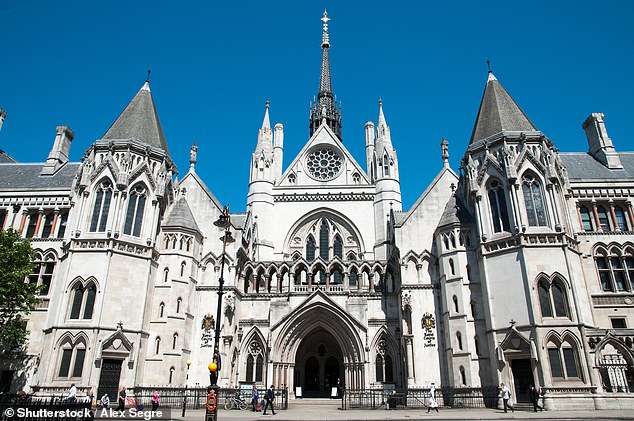Businesses could have to redo their sums for savers who transferred out of their pension schemes as well as those who stayed, following the latest ruling in a complex legal saga.
A landmark court ruling which two years ago ordered Lloyds Banking Group to make sure everyone’s retirement benefits are ‘equalised’ has already had far-reaching effects for other employers.
Millions of people who saved into pensions in the 1990s are having them recalculated.
A new ruling by the High Court today means this will also cover pension transfers made over the past 30 years, a ‘costly and time consuming’ process for schemes and employers, according to industry experts.
Pension calculations: A landmark court ruling two years ago ordered Lloyds Banking Group to make sure everyone has the same retirement benefits
British businesses already faced billions of pounds in pension costs after Lloyds Bank was ordered to compensate women who got less than men.
Today’s ruling doesn’t force them to make corrections to previous pension transfers proactively, though many might do so to avoid having unknown liabilities on their books, explains a legal expert below.
The issue revolves around the ‘guaranteed minimum pension’, which forced employers who contracted staff out of the now abolished ‘state earnings related pension scheme’ or Serps to ensure they didn’t lose out financially.
An anomaly arose because women used to have a different state pension age than men, and this now has to be corrected.
However, eventual GMP adjustments aren’t expected to benefit or disadvantage either men or women in particular, and the impact might only be a pound or two per week with arrears likely to be in the hundreds, not thousands, of pounds.
‘A ruling in 2018 means that schemes should already be in the process of resolving the matter for members still in receipt of a GMP benefit, and today’s judgement means they will now need to re-evaluate payments made to members that transferred out,’ says Ian Browne, retirement planning expert at Quilter.
‘This is going to be a complete minefield as schemes will need to sort through the archives to find records up to three decades old.
‘Having blown the dust off they will need to identify which scheme members would have benefited had GMP equalisation taken place when calculating their transfer value, and either reach out to those people to make them whole, or ensure that they can at least do so in the event of a claim.
‘There is no doubt that this process is going to take time and will leave a lot of pension schemes reeling.
‘The hugely complex process will be both costly and time consuming for the schemes and their sponsoring employers.
‘For the public it will undoubtedly leave pension scheme members, many of whom will now be retired and who may have long-forgotten the terms of their pension 20-30 years ago, scratching their heads at home wondering whether they might be due a payment.’
Matt Davis, head of GMP equalisation at Hymans Robertson, says of today’s legal development: ‘This ruling addresses the thorny issue of pension schemes picking up the tab for GMP equalisation for past transfer values.
‘This should be good news for some of those who took a transfer value as they may now be in line for a top up payment.
‘However, the effort involved in revisiting transfers paid out by pension schemes across the industry over the last 30 years will be a very significant challenge for schemes, and in many cases historical data will not be available.’
Lawyer Danyal Enver, associate at Arc Pensions Law, says: ‘As a result of the Lloyds judgment that came out today, trustees of pension schemes that have transferred out to other pension schemes have breached their duties where the transfer payments were not equalised for GMP.
‘This means that members can successfully claim against the trustees of the transferring pension scheme and the receiving pension scheme and claim a top up payment to reflect the shortfall.
‘However, the judgment does not require the trustees to proactively make these corrections to previous transfers.
‘As a result, they do not have a set roadmap to resolve their breach, but they do not have any obligation to do anything following this judgment.
‘Trustees can now decide if they want to remain with the uncertain possibility of unknown liabilities arising from members’ claims, or if they want to take a complex, costly path to certainty by calculating and settling those liabilities now.’
TOP SIPPS FOR DIY PENSION INVESTORS
Some links in this article may be affiliate links. If you click on them we may earn a small commission. That helps us fund This Is Money, and keep it free to use. We do not write articles to promote products. We do not allow any commercial relationship to affect our editorial independence.
